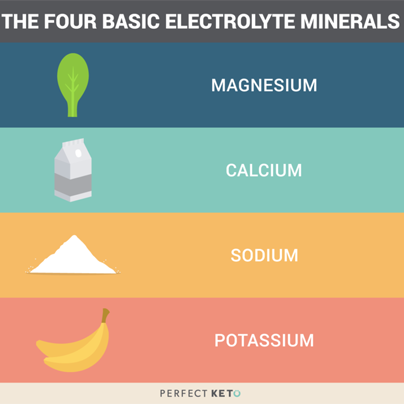As a qualified equine nutritionist, LEISA HOFSETTER from Hof Equine sees a lot of confusion surrounding horses and their need for electrolytes. She explains what to look for ¦
Have you ever wondered if your horse actually needs an electrolyte supplement? Depending on what you are feeding them, the answer may well be yes . But how much, and what exactly, depends on a few factors.
The first thing you and your Equine Nutritionist need to consider is the horse’s current diet and workload. This summer it’s more important than ever to consider the higher ambient temperatures, and of course whether your horse has been affected by the drought, or by bushfires.
So what are electrolytes?: Electrolytes are minerals with an electric charge that have important functions within an animal’s body. These electrolytes need to be at a specific level and must be kept as constant as possible. If the levels fluctuate too much, the consequences can be severe, and can even result in death if not treated promptly.
What do electrolytes do?: One of the functions of electrolytes – in horses as well as humans – is to regulate water in the body. In other words, electrolytes help to keep water at the right levels throughout the body. Some examples of electrolytes include sodium, chloride, potassium, magnesium, phosphorus and calcium.
With so much of Australia impacted by drought and bushfire, many horses have been adversely affected. The immense heat generated by bushfires can indirectly affect horses electrolyte levels through excess sweating, and cause direct damage if the horse has suffered burns. Burns to the body of a horse can be fatal if not treated by a veterinarian. Part of this danger is due to potentially life-threatening electrolyte level fluctuations in the first seven days after the burn incident.
Following severe burns, electrolytes such as potassium, sodium, magnesium and phosphorus may fall or rise above a normal, safe level. It is important to seek veterinary treatment or advice for horses that have been burned in bushfires, as specific equipment and expert knowledge is needed to prevent these potentially fatal fluctuations in electrolyte levels.
The impact of drought conditions: Drought conditions cause drier soil, which means there is reduced water evaporation from the ground. The dissipation of heat from the ground via the evaporation of water would usually prevent higher ambient temperatures. But dry soil means less water to evaporate, so heat remains in the ground and makes the ambient temperature rise.
Increased ambient temperatures affect the electrolyte needs of horses because they sweat more in response to the heat. If your horse is sweating more, it means a greater electrolyte loss and therefore increased electrolyte requirements. The amount of additional electrolytes you will need to feed your horse depends on the temperature. For example, in temperatures of 40° or above, the daily electrolyte supplementation in feed needs to be doubled!
When your horse sweats: If your horse is sweating when you work them, they may have a greater need for salt and mineral (electrolyte) supplementation. This is because when horses sweat during exercise, the normal electrolyte levels in their blood are reduced and can only regulate back to normal levels if sufficient salts and minerals are present in their diet.
Why is this a potentially huge problem?: The lower electrolyte levels in your horse’s blood caused by sweating also reduces their desire to drink. This means that in the instance of sweating during exercise, without salt and mineral supplementation the horse will dehydrate. Offering water without supplementation at this point will only dehydrate the horse further. So it is important to supplement with salts and minerals if your horse is in work.
Putting it all together: All of the factors mentioned can influence your horse’s electrolyte requirements significantly to the point where you may need to increase certain electrolytes in their feed. However, it is important to look at your horse’s complete diet when deciding what to supplement and how much. Your horse may already be getting more than enough of a certain electrolyte, depending on what you are feeding them. Your Equine Nutritionist can help you to analyse your horse’s current diet to determine what electrolytes may be lacking, and can design a diet for your horse that best meets all of their requirements.
Leisa Hofstetter, Equine Nutritionist, BEqSc, Hof Equine
For more great content, come and join the HorseVibes tribe!



